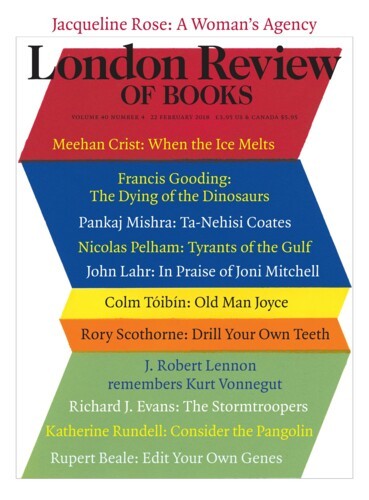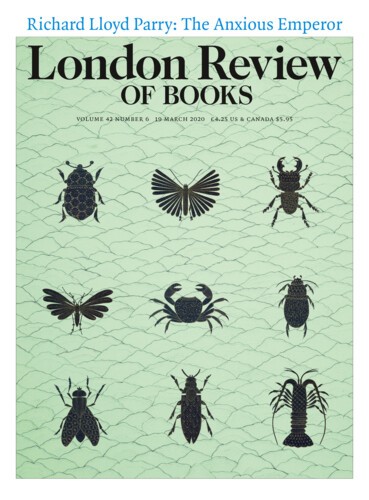In Yes Minister, 'one of the best run hospitals in the country' turns out to have a major advantage: it has no patients. This week, the Care Quality Commission said that the hospital I work at, Addenbrooke's in Cambridge, is 'inadequate', despite acknowledging that the care provided to patients is 'outstanding', with one of the lowest standardised mortality rates in the UK. This outstanding hospital is so inadequate that it's been placed in what are euphemistically termed 'special measures'.
Rupert Beale
Rupert Beale is a clinician scientist group leader at the Francis Crick Institute.
I was one of ten thousand people who marched on Westminster to protest against the unjust and unsafe imposition of a new deal for junior doctors by an arrogant government. The reforms treated us like cogs in a malfunctioning machine, abolishing our autonomy and any consideration for family life. We cheered as the leader of the opposition spoke up for us, told us how much the NHS meant to him, and explained how the government had got it wrong by undervaluing junior doctors. The year was 2007, and the speaker was David Cameron.
It’s wrong to jeopardise patient care, even if it means working very long hours for mediocre pay. That’s why junior doctors will often turn up to work if they are themselves ill, and why they haven't gone on strike for forty years. The leader of the BMA Junior Doctors described today as ‘the saddest day in our profession’s recent history’. It’s difficult to disagree. This is not because emergency care was compromised. The service provided by junior doctors today was on a par with that of a bank holiday (the marriage of Prince William and Kate Middleton was more disruptive to the NHS). Around 3500 patients had elective procedures cancelled, though, and this dispute isn’t their fault.
Diary: Edit Your Own Genes
Rupert Beale, 22 February 2018
The business of science is intensely frustrating. Most experiments fail, most great ideas come to nothing, and most genuine discoveries turn out to be of modest importance. Years of effort can easily be wasted on what turns out to be a mirage. In biology, we usually fail for the dullest of reasons: a test wasn’t as specific as we thought, a wondrous result proved to be a simple...
Short Cuts: Wash Your Hands
Rupert Beale, 19 March 2020
In countries where rapid testing and isolation do not happen, the disease will at its peak rapidly overwhelm the ability of hospitals to cope, and the case fatality rate will be much higher. The global case fatality rate is above 3 per cent at the moment, and if – reasonable worst case scenario – 30-70 per cent of the 7.8 billion people on earth are infected, that means between 70 and 165 million deaths. It would be the worst disaster in human history in terms of total lives lost. Nobody expects this, because everyone expects that people will comply with efficient public health measures put in place by responsible governments.
Podcasts & Videos
The Omicron Wave
John Lanchester, Rupert Beale and Thomas Jones
John Lanchester and Rupert Beale talk to Tom about the spread of the latest variant, where we might stand in the story of Covid, and the failures of the state in coping with the pandemic.
Optimistic Caution
Catherine Moore, Rupert Beale and Thomas Jones
Catherine Moore, a consultant clinical virologist at Public Health Wales, and Rupert Beale, a clinician scientist group leader at the Francis Crick Institute, talk to Thomas Jones about the vaccine rollout...
End in Sight
Rupert Beale and Thomas Jones
Rupert Beale talks to Thomas Jones about the new Sars-CoV-2 vaccines, how the mRNA technology works, why social distancing still matters, and why he’s worried about Christmas. (The conversation was recorded...
Covidology
Rupert Beale and Thomas Jones
Rupert Beale talks to Thomas Jones about Covid-19 vaccine candidates, and reasons not to rush them; how worried we should be about reported cases of re-infection; possible reasons for the apparent drop...
Reopening the NHS
Sonia Gandhi, Rupert Beale and Thomas Jones
Sonia Gandhi and Rupert Beale, scientists at the Francis Crick Institute, talk to Thomas Jones about the ways Covid-19 can affect the nervous system, the steps required to reopen the NHS after lockdown,...
In the Lab
Rupert Beale and Thomas Jones
Rupert Beale talks again to Thomas Jones about his work at the Francis Crick Institute, where he's helping to develop a testing lab for Covid-19. He talks about the challenges of creating a scalable testing...
Wash Your Hands, Again
Rupert Beale and Thomas Jones
Following his piece for the LRB about Covid-19, Rupert Beale talks to Thomas Jones about what the novel coronavirus is, how well countries are dealing with it, and what hopes there are for stopping the...
Read anywhere with the London Review of Books app, available now from the App Store for Apple devices, Google Play for Android devices and Amazon for your Kindle Fire.
Sign up to our newsletter
For highlights from the latest issue, our archive and the blog, as well as news, events and exclusive promotions.



